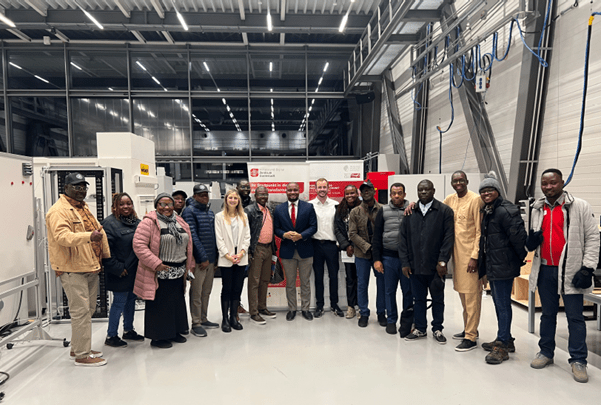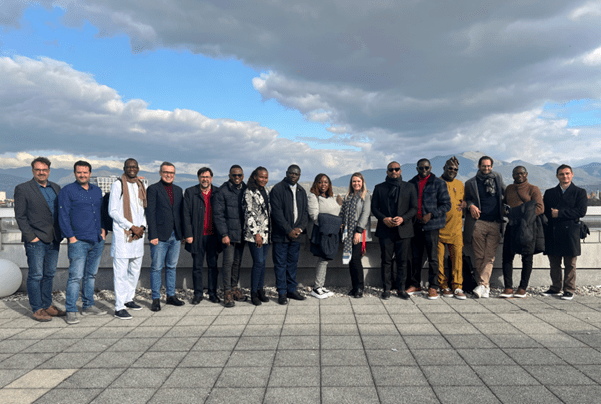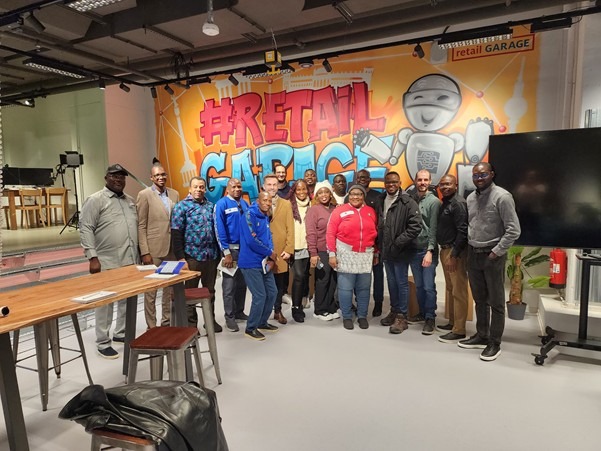In November 2024, a delegation from Nigeria’s Digital Transformation Centre (DTC) embarked on a transformative study trip to Germany, Serbia, and Bosnia and Herzegovina. The mission? To gather insights and best practices for establishing Digital Service Points (DSPs)hubs designed to drive digital adoption among Nigeria’s small and medium enterprises (SMEs). Here’s what they learned and how it could reshape Nigeria’s digital landscape.

Why This Trip Mattered
Nigeria’s SMEs, particularly in retail, manufacturing, and green sectors, often lag in digital adoption due to gaps in infrastructure, skills, and awareness. The study tour, part of the *Support for Digital Transformation of SMEs in Nigeria* project, aimed to bridge these gaps by exploring proven models abroad. The delegation included staff from the Small and Medium Enterprises Development Agency of Nigeria (SMEDAN), GIZ, and ECO Consult, visiting 19 organisations across three countries.
Key Highlights from the Tour
- Germany’s Collaborative Ecosystem
Retail Garage (Berlin):A governmentbacked hub showcasing AI, robotics, and ecommerce solutions for SMEs. Lessons:
DSPs should act as exhibition spaces for tech solutions, inspiring curiosity and partnerships.
Use podcasts and social media to amplify reach, as seen in their Future of Shopping series.
Digital Agency Berlin:A onestop shop offering free consultations, cybersecurity workshops, and funding access. Lessons:
Grassroots awareness campaigns and personalised support (e.g., “digitalisation breakfasts”) boost SME engagement.
Prioritise IT security to build trust in digital tools.
MittelstandDigital Zentrum (Darmstadt):Handson workshops and sectorspecific support (e.g., tourism, crafts). Lessons:
Adopt usercentred design and subsidised services to lower barriers for SMEs.

2. Serbia’s Systemic Approach
ICT Hub Belgrade:A publicprivate partnership fostering startups in agriculture, biotech, and gaming. Lessons:
Blend mentorship, investment mechanisms, and sectorspecific programmes.
Coworking spaces for startups and SMEs spark collaboration.
Innovation Fund Serbia:Governmentbacked grants and mentorship for SMEs. Lessons:
Transparent evaluation processes and cofunding models ensure accountability and shared commitment.
Centre for Digital Transformation (CDT):Certified consultants guide SMEs through digital maturity assessments. Lessons:
Structured phases (assessment → strategy → implementation) ensure sustainable adoption.

3. Bosnia’s EducationDriven Model
Sarajevo School of Science and Technology (SSST):Partnerships with universities to nurture tech talent. Lessons:
Integrate STEM education early to build a digitally savvy workforce.
Link DSPs with academia for longterm innovation.

The study tour underscored a universal truth: digital transformation thrives on collaboration, tailored support, and longterm vision. By adopting lessons from Germany’s innovation hubs, Serbia’s systemic frameworks, and Bosnia’s education focus, Nigeria can empower its SMEs to compete globally. As Charles Odii, SMEDAN’s DirectorGeneral, noted: “This trip isn’t just about ideasit’s about action.”


